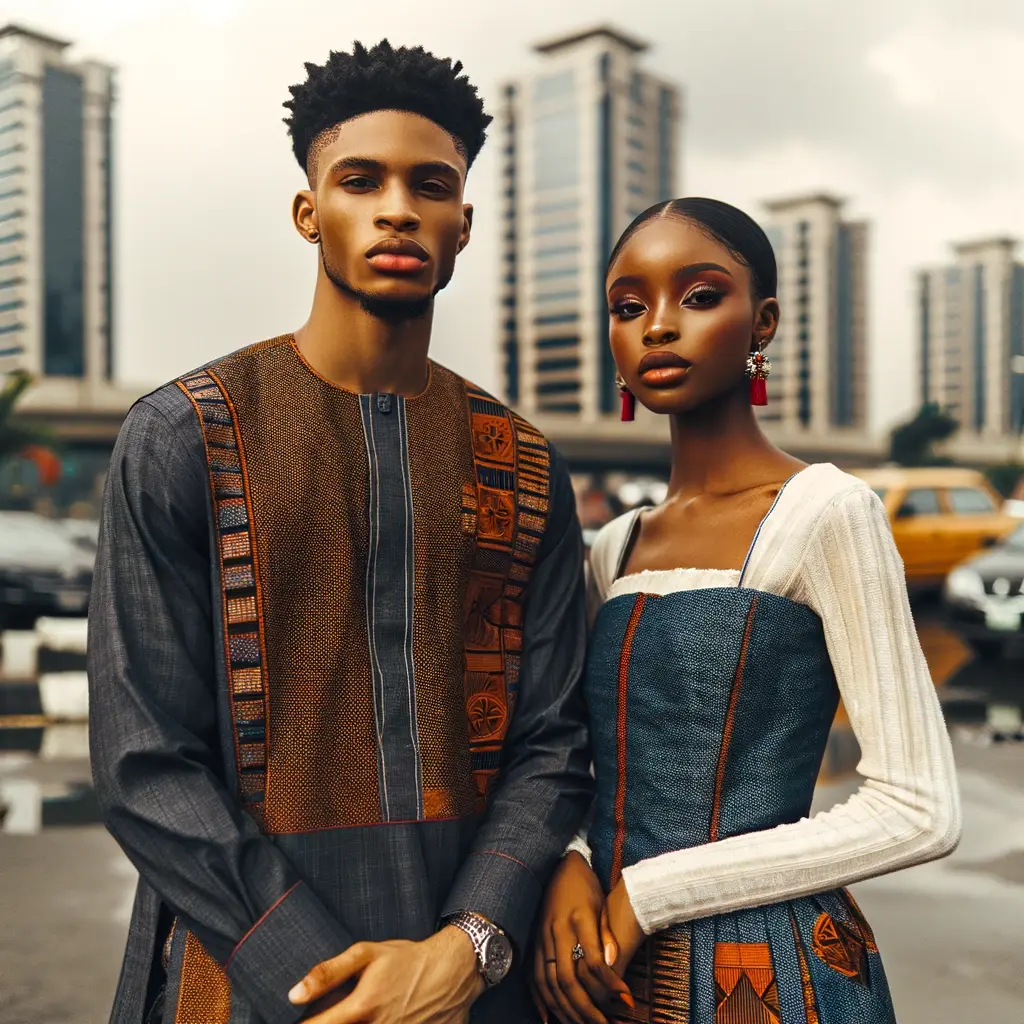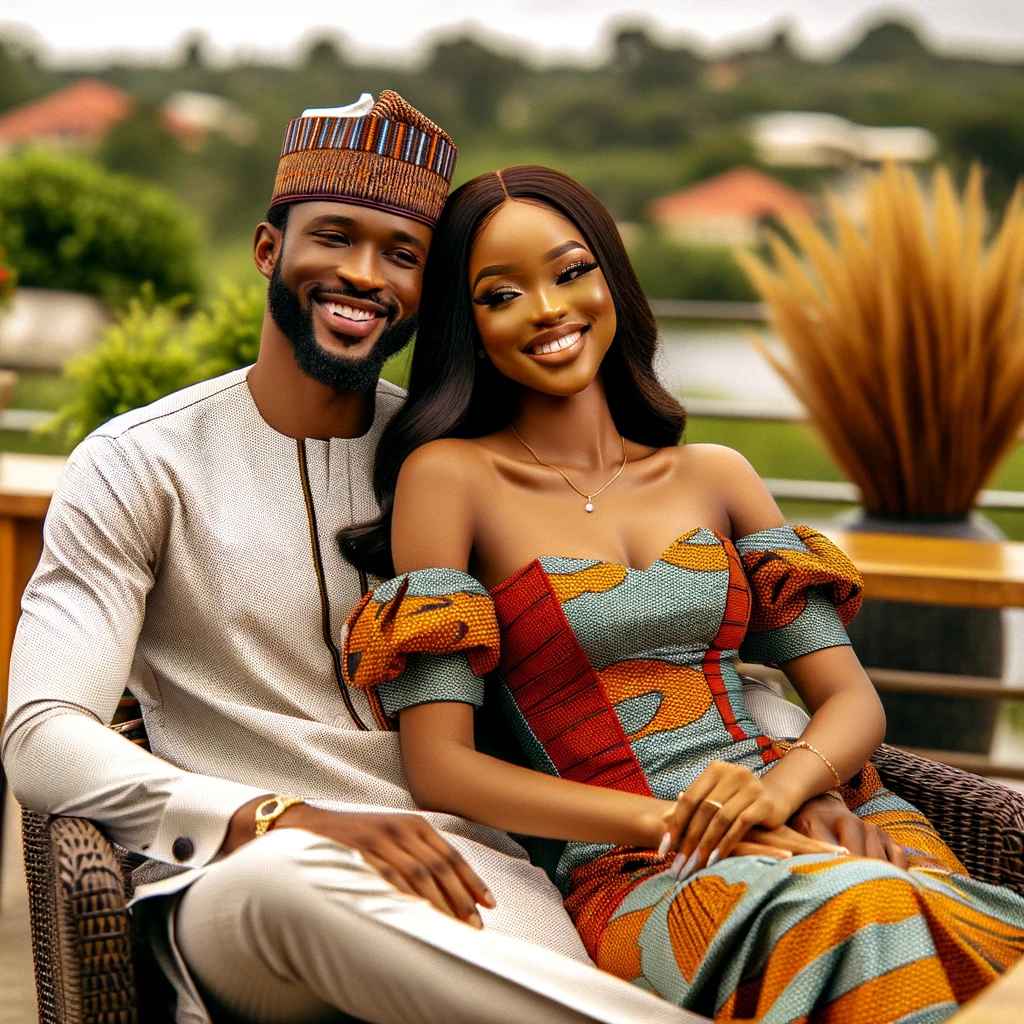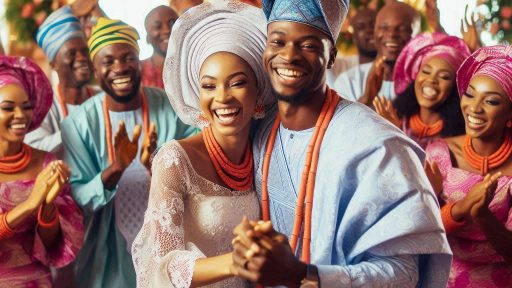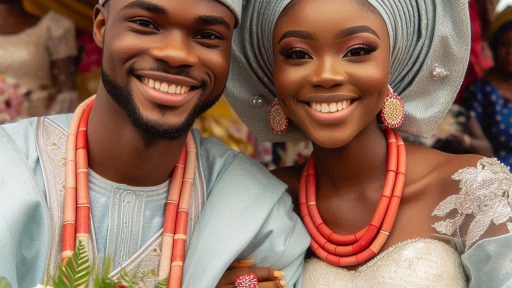Introduction
Let’s explore the fears of marriage in Nigeria by Gen Z and Millenials.
In Nigeria, the concept of marriage is evolving. Traditional views meet modern skepticism, reshaping societal norms.
This transition notably reflects within younger generations, particularly Gen Z and Millennials.
Their perspectives on marriage, strikingly different from their predecessors, inject fresh dynamics into discussions about matrimonial futures.
Gen Z and Millennials in Nigeria now approach marriage with caution.
Economic uncertainties, career goals, and the fear of repeating their parents’ mistakes influence their attitudes.
They question the necessity of marriage, pondering its relevance in a rapidly changing world.
These generations seek more than societal validation; they crave compatibility, equality, and mutual respect.
Moreover, the digital age brings global perspectives to their doorstep, exposing them to varied views on love, commitment, and personal fulfillment.
This exposure fuels their desire for relationships that break free from traditional constraints.
They advocate for a redefined understanding of partnership, one that espouses individual growth and shared aspirations.
In essence, Gen Z and Millennials in Nigeria embody a transformative phase.
They are not outright rejecting marriage but are demanding a new paradigm that aligns with contemporary values and realities.
Their fears stem not from commitment itself but from what marriage has historically represented.
Through their lens, they envision a future where marriage is an option, not an obligation, marking a significant shift in the cultural tapestry of Nigerian society.
Historical Perspective on Marriage in Nigeria
In Nigeria, traditional views on marriage deeply rooted in community, religion, and tribe shape societal norms.
Historically, marriage symbolized alliances between families, transferring wealth and status.
These practices reflect Nigeria’s diverse ethnic groups, each with unique customs.
Today, examining these traditions and their evolution offers insights into the fears Gen Z and Millennials harbor towards marriage.
Traditional Views and Practices of Marriage in Nigeria
- Consent and Arrangements: Families traditionally arranged marriages, often without the direct consent of the individuals involved. Such arrangements ensured alignment of social and economic interests.
- Bride Price: The groom’s family paid a bride price, seen as compensation to the bride’s family for their loss. This practice, still prevalent, varies significantly across regions.
- Festivities and Rituals: Lavish ceremonies, lasting several days, marked these unions. Traditional dances, attire, and rituals emphasized the joining of families, not just individuals.
- Roles and Expectations: Marriages reinforced gender roles, with distinct expectations for husbands and wives. Men were providers, while women focused on homemaking and child-rearing.
How Marriage Practices Have Evolved Over the Generations
- Influence of Education and Globalization: Increased access to education and global influences have shifted perspectives. Young Nigerians now emphasize compatibility and love as marriage foundations.
- Shift in Gender Roles: Women’s growing participation in the workforce challenges traditional roles. Couples now negotiate roles, balancing careers and household responsibilities.
- Legal Reforms: Laws combating child marriage and upholding women’s rights reflect changing attitudes. These reforms encourage autonomy and consensual unions.
- Rise of Courtship: Unlike traditional arranged marriages, modern relationships often involve longer periods of courtship. Couples prioritize understanding each other before committing.
- Decline in Polygamy: Once common, polygamy has seen a decline among younger generations. Monogamy, influenced by both modern values and economic realities, becomes more prevalent.
- Wedding Innovations: While traditional ceremonies remain important, Western-style weddings gain popularity. Many opt for a blend of both, honoring heritage while embracing contemporary tastes.
- Changing Views on Bride Price: Debates on the bride price’s relevance reflect broader discussions on gender equality. Some now view it as symbolic, moving away from its transactional origins.
These changes demonstrate a dynamic cultural landscape. Generations evolve, adopting new ideas while grappling with tradition.
For Gen Z and Millennials, apprehensions towards marriage often stem from these conflicting values. Economic pressures and desires for equality further complicate their views.
Yet, the continuous transformation of marriage practices in Nigeria offers a pathway to addressing these fears, fostering a future where marriage reflects both individual desires and cultural respect.
Read: Inter-State Marriages: Certificates and Legalities
1. Economic Factors Contributing to Marriage Fears
In today’s Nigeria, economic factors significantly shape the perspectives of Gen Z and Millennials towards marriage.
The nation’s economy deeply influences young people’s capacity to tie the knot.
Various elements converge, making the prospect of marriage more daunting than ever before.
Firstly, we observe the direct impact of Nigeria’s economic conditions.
A sluggish economy limits opportunities for young adults.
Many struggle to secure stable incomes, a basic requirement for starting a family.
High inflation rates also erode purchasing power, making it harder to save for future plans, including marriage.
- The unemployment rate among young Nigerians tells a grim story. A significant chunk of Gen Z and Millennials find themselves jobless or stuck in low-paying jobs. This underemployment undermines their ability to build a life together with a partner.
- Underemployment serves as a double whammy. It doesn’t just affect income. It also impacts self-esteem and mental health, making the commitment of marriage feel even more unattainable.
Next, the rising costs of wedding ceremonies pose a substantial challenge.
Nigerian weddings are famous for their lavishness, but this tradition becomes a burden for many.
As the expectations for grandeur grow, so does the financial strain on couples looking to marry.
- Couples face the need to impress not only their families but also a broader social circle. This pressure inflates wedding budgets, making the dream of a beautiful ceremony an expensive nightmare.
- The influence of social media amplifies these expectations. Platforms like Instagram showcase opulent weddings, setting a high bar for what a “successful” wedding should look like.
Finally, the general cost of marital life in Nigeria adds another layer of concern.
Setting up a home, managing daily expenses, and planning for children become Herculean tasks against a backdrop of economic instability.
- Rental prices have skyrocketed in urban areas, consuming a major share of monthly budgets. This trend forces couples to rethink their plans or delay marriage indefinitely.
- Education costs for potential children also loom large. Parents increasingly view quality education as non-negotiable, adding to the long-term financial planning pressures before even considering marriage.
All these factors intertwine, creating a complex web of economic challenges that directly influence Gen Z and Millennials’ views on marriage.
The decision to marry, traditionally seen as a rite of passage, now requires a calculated approach, weighing the joys of companionship against the stark economic realities of modern Nigerian life.
Despite these challenges, young Nigerians continue to adapt and find creative solutions.
From smaller, more intimate wedding ceremonies to alternative income streams, resilience and innovation shine through.
As society evolves, so too do the definitions and expectations surrounding marriage, reflecting a broader shift towards pragmatism in the face of economic adversity.
Read: The Role of Witnesses in US Marriages: What Nigerians Should Know
2. Social and Cultural Pressures
In Nigeria, social and cultural pressures immensely shape Gen Z and Millennials’ views on marriage.
Families and society set high expectations.
Social media also plays a crucial role. Attitudes towards roles within marriage are evolving.
This section delves into these aspects.
Family and Societal Expectations
- Parents often expect children to marry early.
- Society deems marriage a key to maturity.
- Success is sometimes measured by marital status.
- Extended family pressures add to the stress.
- Comparisons with married siblings or cousins are common.
- Cultural celebrations elevate the status of marriage.
- Financial stability is assumed to follow marriage.
Influence of Social Media
- Perfect marriages are often portrayed online.
- Couples share idealized moments, skewing perceptions.
- Social media creates unrealistic expectations of weddings.
- Young people feel pressured to match these standards.
- Marriage challenges are underrepresented on these platforms.
- Influencers rarely discuss the reality of marital issues.
- Comparison traps lead to dissatisfaction with one’s status.
Changing Attitudes Towards Roles
- Traditional gender roles in marriage are questioned.
- Couples now favor partnerships over hierarchical structures.
- Independence is valued more by both partners.
- Household responsibilities are increasingly shared.
- Careers are equally important for both spouses.
- Decision-making is becoming more collaborative.
- Flexibility in roles is often expected.
These pressures mount on the younger generations, influencing their perception of marriage profoundly.
Families and society set benchmarks, often forgetting the changing dynamics of the modern world.
Social media adds a layer of complexity, showcasing a distorted reality that many strive to emulate but seldom achieve.
The evolving views on marriage roles signal a shift towards more balanced, equitable partnerships, moving away from traditional expectations.
Understanding these pressures can help in navigating the path to marriage with a more open, realistic mindset.
Read: Gift Ideas for Nigerian Marriage Functions: A Handy Guide
3. Personal Freedoms and Life Goals
In the heart of Nigeria’s vibrant cities and quaint villages alike, Gen Z and Millennials approach the concept of marriage with a mix of reverence and reluctance.
The reasons for this hesitation intertwine deeply with their aspirations for personal freedoms and life goals.
Prioritization of Education, Career, and Personal Development
Today’s youth put immense value on personal growth. Education stands as a cornerstone, not merely as a rite of passage but as a continuous journey of enlightenment.
They invest years in building their careers, often going beyond bachelor’s degrees to master’s and doctorates.
This commitment to career and personal development creates a form of fulfillment they fear marriage might disrupt.
In bustling cities like Lagos and serene towns alike, young professionals clock long hours, aiming for excellence and innovation in their fields.
The pursuit of these goals leaves little room for traditional marriage timelines.
The delay allows them to secure financial stability and independence, which they view as crucial before entering matrimony.
Fear of Losing Independence within a Marital Setup
Independence holds a sacred place in the hearts of many young Nigerians.
The thought of compromising their autonomy for marriage stirs anxiety.
They wonder how their personal goals will fit into a partnership that historically prioritizes collective goals over individual aspirations.
Discussions in forums, on social media, and in peer groups often revolve around finding a balance.
Young people express a desire for a partner who understands and respects their autonomy.
They seek relationships where both individuals can pursue personal goals without hindering each other.
Desire to Travel and Experience Life Before Settling Down
Adventure calls to the young, adventurous spirit. Many Nigerian Millennials and members of Gen Z dream of exploring the world before settling down.
They save diligently, yearning to tread on foreign lands, immerse themselves in different cultures, and collect experiences that no textbook could ever teach.
The narrative of “settling down” after such escapades entails finding a partner who shares or at least respects this wanderlust.
The fear of committing to someone who might not be compatible with this vision of life adds another layer of hesitation towards marriage.
The evolving perspectives of Nigerian Millennials and Gen Z on marriage are a reflection of their broader aspirations.
They view marriage not as an end goal but as a possible part of a rich tapestry of life experiences.
As they navigate their youth, prioritizing education, career, personal development, and the quest for independence and adventure, marriage becomes a choice that must align with these personal milestones.
The future of matrimonial unions in Nigeria may well depend on how societal norms and expectations evolve to accommodate these changing priorities.
Read: Innovative Themes for Marriage Functions in Nigeria
4. Concerns About Marital Stability
Many young Nigerians today grapple with concerns about marital stability. High divorce rates deeply influence their thoughts on tying the knot.
Media reports and stories from older generations paint a grim picture.
They see marriages crumbling around them.
This visibility increases their fear of making a lifelong commitment that might not withstand the tests of time.
Fear of entering an unhappy or abusive marriage
Additionally, fears of entering an unhappy or abusive marriage loom large.
Tales of domestic discord and violence circulate widely, causing many to tread carefully.
Young people worry about the possibility of finding themselves trapped in a dangerous liaison.
They seek assurance that their future partner will respect and nurture them, not harm them.
The quest for compatibility and fear of making a lifelong mistake
The quest for compatibility also fuels anxieties about marriage.
Young Nigerians long for a partner who shares their values, dreams, and lifestyle preferences.
They are keenly aware that mismatches in these areas can lead to discontent and conflict.
The pressure to choose a “right” partner, who fits perfectly, amplifies the fear of making a mistake they cannot undo.
- Stories of divorce serve as cautionary tales, prompting many to question the feasibility of marriage.
- The societal stigma associated with separation adds another layer of concern, making the decision to marry even more daunting.
- Observing unhappy marriages within their communities, young people question if true compatibility exists.
- The desire for a harmonious life partnership drives the quest for a deep understanding before commitment.
- Knowledge of domestic abuse cases instills a determination to avoid similar fates, influencing relationship choices.
- Many seek role models who exemplify successful marriages, but often find these examples lacking.
- Conversations about marriage frequently revolve around fears rather than the joy it can bring.
- Resources for pre-marital counseling are sought after as tools to mitigate the risks of incompatibility.
Redefining Marriage: Young Nigerians’ Deliberate Approach
The environment young Nigerians grow up in, combined with global influences, challenges traditional views of marriage.
They now approach marriage with a mixture of hope and caution. In conversations, forums, and social media discussions, young people candidly express their concerns and seek advice.
They gather stories and lessons, trying to piece together a formula for a successful marriage.
Despite these fears, many still hold onto the hope of finding a loving, supportive, and stable marriage.
They actively engage in self-improvement, understanding that a healthy relationship starts with a healthy self.
This generation also shows a strong preference for open communication and counseling as means to ensure compatibility and mutual respect.
They believe in love but approach it with eyes wide open, aware of the potential pitfalls that lie ahead.
In essence, while the fears surrounding marital stability are significant, they have not extinguished the desire for deep, meaningful connections among young Nigerians.
Instead, these concerns have prompted a more careful, deliberate approach to marriage — one rooted in self-awareness, communication, and respect for individual differences.
As young Nigerians navigate these waters, they redefine what marriage means for their generation, aiming for partnerships that are not only fulfilling but also enduring.

5. Influence of Globalization and Exposure to Diverse Cultures
Globalization connects the world in unprecedented ways.
It has opened doors to new cultures, ideas, and norms, shaping perspectives globally.
In Nigeria, young populations like Gen Z and Millennials feel this impact profoundly, especially regarding their views on marriage.
Through exposure to different cultures and norms, many of these young individuals start to question traditional marriage roles and expectations, leading to significant shifts in attitudes and behaviors regarding marriage and relationships.
Questioning Traditional Roles:
As Nigerian youths immerse themselves in global cultures, they challenge longstanding norms.
Ideas around gender roles, marriage expectations, and family structures undergo scrutiny.
Many rebuff the idea that marriage is the ultimate goal, opting instead to prioritize personal development and career advancement.
Acceptance of Diversity:
Exposure to diverse cultures fosters a more inclusive perspective.
Nigerian youths increasingly accept and sometimes prefer non-traditional relationships.
Mixed-race marriages, same-sex relationships, and living together before marriage no longer carry the stigma they once did, at least among the younger generation.
Communication and Conflict Resolution:
Influenced by global perspectives, Nigerian youths demand better communication and healthier conflict resolution tactics in relationships.
They reject the notion that one party, often the woman, should compromise more for the relationship’s sake. Instead, they advocate for equality and mutual understanding.
Financial Independence Over Marriage:
The global emphasis on individual financial stability influences Nigerian youths to prioritize economic independence over marriage.
They witness models of self-reliance and ambition internationally, inspiring many to delay marriage until they achieve personal financial goals.
Redefining Family Structures:
Inspired by global norms, some Nigerian youths envision alternative family structures beyond the nuclear family.
They are open to adoption, single parenthood by choice, and other forms of family less recognized by traditional Nigerian society.
Shift in Marriage Age:
Influenced by global trends, the average age for marriage among Nigerians has risen.
Young people seek to explore the world, establish careers, and understand themselves better before committing to lifelong partnerships.
Valuing Emotional Connections:
Nigerian youths increasingly prioritize emotional compatibility and love in choosing partners, diverging from arranged marriages or unions primarily based on social and economic status.
This shift signifies a deep-rooted change in how relationships form and flourish.
Impact of Social Media:
Platforms like Instagram, Twitter, and Facebook play pivotal roles.
They offer a window to global relationship trends, alternative lifestyles, and the freedom to love.
This digital exposure breaks down traditional barriers, encouraging Nigerian youths to pursue what genuinely makes them happy in relationships and marriage.
Increased Dialogue on Marital Issues:
Lastly, the global discourse on marriage equality, domestic violence, and divorce rights reaches Nigeria’s younger generation.
This exposure emboldens many to voice concerns, demand change, and seek more egalitarian partnerships than previous generations.
Gazing into the future, the influence of globalization and the exposure to diverse cultures promise to keep molding Nigerian youths’ perceptions of marriage and relationships.
This evolution, although met with resistance from more traditional spheres, hints at a future where choices in love and partnership are as diverse as the global influences that inspire them.
6. Possible Solutions to Address Fears
In addressing the prevalent fears of marriage among Gen Z and millennials in Nigeria, it’s vital we explore practical solutions.
These fears often stem from observing the challenges faced by generations before them, the pressure of societal expectations, and economic uncertainties.
Solutions lie in the realms of communication, financial savvy, and relationship education.
1. Encouraging Open Conversations About Marriage Expectations and Fears
To build a resilient foundation for marriage, partners must discuss their expectations openly.
Conversations should cover personal goals, values, and fears. This dialogue enhances understanding and alignment.
Couples should routinely check in on these topics, ensuring both parties feel heard and supported.
2. Financial Planning and Management Education for Young Couples
Money issues commonly strain marriages. Thus, offering financial planning and management workshops can significantly help.
Couples learn budgeting, investing, and handling debts together.
These skills not only build financial security but also reinforce teamwork and mutual respect.
3. Promoting Premarital Counseling and Education on Relationship Skills
Premarital counseling offers couples tools to navigate future challenges.
By addressing potential conflicts before they arise, couples build resilience.
Counseling should cover communication techniques, conflict resolution skills, and emotional intelligence.
Additionally, enriching relationships through education in these areas fosters a deeper understanding and patience between partners.
Action Steps:
- Implementing Workshops: Stakeholders should organize workshops focused on marriage expectations and financial literacy.
- Encouraging Counseling: Churches, mosques, and community centers can play significant roles in offering or promoting affordable premarital counseling services.
- Campaigns for Openness: Social media campaigns can encourage young couples to share their fears and expectations, normalizing these conversations.
Each solution requires collective effort from communities, religious institutions, families, and, most importantly, the couples themselves.
By facing fears with practical strategies, Gen Z and millennials can redefine marriage for a more fulfilling journey together.
Read: An Overview of Cross-cultural Marriages in Nigeria
Conclusion
Gen Z and Millennials in Nigeria express distinct fears about marriage. These concerns include economic instability, loss of personal freedom, and the pressure to conform to traditional roles.
They perceive marriage not just as a union of love but as a complex institution fraught with financial, social, and personal challenges.
This reflects a significant shift in attitudes compared to previous generations, driven by an increasingly globalized perspective and exposure to diverse viewpoints.
Understanding these fears requires a generational dialogue that embraces empathy and openness.
Families and society at large need to acknowledge that the landscape of marriage has evolved.
The desires and expectations of young Nigerians today differ markedly from those of their parents or grandparents.
Adaptation and support are essential in bridging this growing gap. We must encourage conversations that consider changing beliefs and values around marriage.
A call to action stands clear: society must support young people as they navigate their marital choices.
This support includes providing resources on relationships and platforms for expression, challenging outdated stereotypes, and fostering environments where diverse marital views are respected.
Empowering Gen Z and Millennials to make informed, confident decisions about marriage will strengthen the institution for future generations.
Let us champion understanding, flexibility, and open dialogue to address the fears surrounding marriage, ensuring that love, partnership, and mutual growth remain its foundation.




